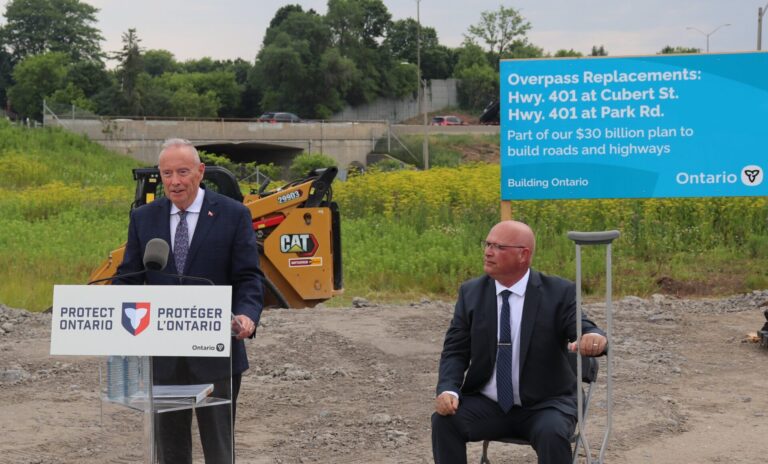The federal government released a housing-focused fall economic statement that promised to deliver 101,000 new homes by 2032.
Starting in the next fiscal year, Ottawa will make $15 billion available in new loan funding under the Apartment Construction Loan Program — an initiative meant to spur the construction of affordable homes. That program is expected to cost the federal government $342 million.
The government also announced that it is removing the GST from construction of eligible new co-op rental housing projects.
The measure won’t apply to substantial renovations of existing units — a limit the government says is meant to reduce the chances of owners “renovicting” tenants.
“Our economic plan is about building a strong economy that works for everyone, and this fall economic statement is the next phase of our plan. With a focus on supporting the middle class and building more homes, faster, we are taking action on the priorities that matter most to Canadians today and we will continue doing everything we can to deliver for Canadians from coast to coast to coast.” said Chrystia Freeland, Deputy Prime Minister and Minister of Finance.
While the federal government’s s support for housing was welcomed by various associations involved in the construction industry, many said more must be done in order for Canada to build more homes faster.
Measures rolled out in today’s fall economic statement are a step in the right direction towards tackling the most critical housing crisis in generations, but the federal government can and must do more, said Residential Construction Council of Ontario (RESCON) president Richard Lyall.
“Billion-dollar fixes are being proposed, but the housing supply crisis and affordability issue is a trillion-dollar problem, as noted by the CMHC,” he said. “We are encouraged that housing is a main focus of the feds but there are still many impediments that were not addressed such as the enormous infrastructure funding gap faced by municipalities that impedes new home construction. We need a Marshall plan-styled strategy with respect to the chronic housing supply shortfall.
“However, many impediments to housing construction were not addressed, such as reducing taxes associated with purchasing a home and the unacceptably long approvals process that builders must endure when starting a project. Without tackling these issues, and the huge infrastructure funding gap being faced by municipalities, the housing problem will not be solved. Municipalities are in a challenging position and the feds must pick up the slack by funding the necessary public infrastructure to support housing.”
According to Scott Pearce, president of the Federation of Canadian Municipalities (FCM), the reality is that it is not feasible to rapidly scale up new housing construction without also investing in the municipal infrastructure that supports it.
“We are concerned that the Fall Economic Statement does not reflect the scale of infrastructure investment required to meet the national housing supply gap, and FCM will be looking to Budget 2024 for a comprehensive, ambitious investment in community infrastructure that matches the record-breaking population growth currently underway in Canada,” he said.
While the federal government’s s support for housing is welcomed, the Association of Consulting Engineering Companies – Canada (ACEC) is disappointed by the lack of new investments for infrastructure needed to support housing initiatives announced.
“Building new houses and residential buildings to increase housing supply is critical to a growing number of Canadians,” said John Gamble, president and CEO of ACEC. “What is less obvious but equally important is infrastructure such as roads, transit, electrical grids, water and wastewater that allow these buildings to actually become homes. Otherwise, many municipalities may not have the capacity to take full advantage of today’s announcements and deliver what Canadians need.”
According to a statement released by the Canadian Construction Association, the 2023 fall economic statement fell short in other important areas including measures to shore up Canada’s trade-enabling infrastructure.
“The announcement to leverage the Canada Infrastructure Bank to support more housing may finally recognize the fact that more homes cannot be built without the essential housing-enabling infrastructure to support it – a position the industry has been repeatedly reminding all orders of government. Details on these necessary investments are missing. The industry is expecting to see a long-term, comprehensive infrastructure investment plan in the federal government’s 2024 Budget.”
Featured image: (Government of Canada)











